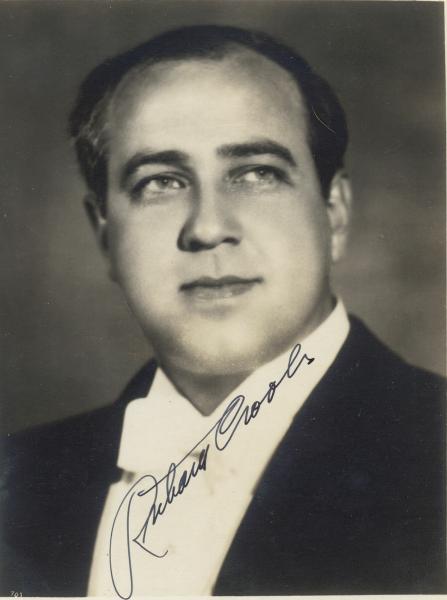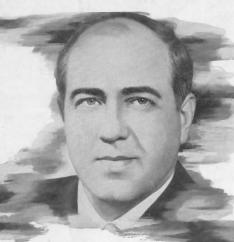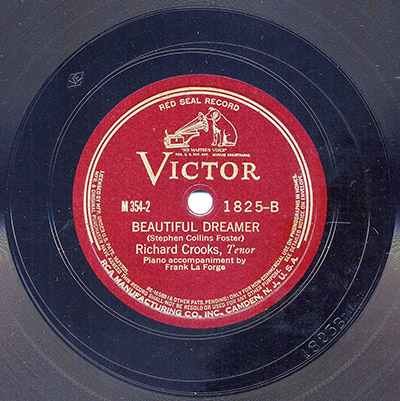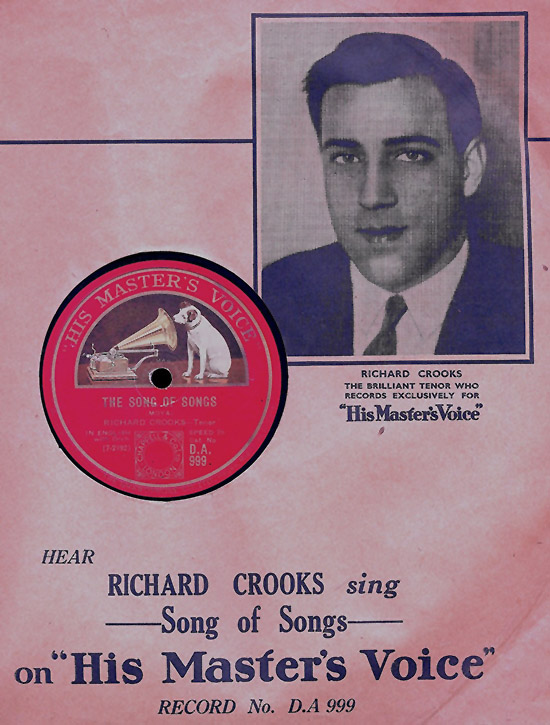Crooks was a boy soprano in a church choir when first being noted for his sweet voice – by nobody less than
Ernestine Schumann-Heink, who sang a concert in that church and was so enthusiastic about Crooks' singing that she gave the
boy a kiss in front of the audience.
He lied about his age so as to be able to serve in the US Air Force in the First World War. After the war, he studied voice in
New York City, and started his career as a soloist in another church choir. He declined an offer to sing on Broadway,
although he desperately needed money. After his breakthrough in nine concerts with the New York Symphony Orchestra and Walter
Damrosch, he established himself as a concert and oratorio tenor, and got a contract with Victor Records.
In 1925, he traveled to Europe for concerts in London (which were sorely unsuccessful), Belgium (reasonably successful), the
Netherlands and Germany (hugely successful in both countries). Back home in New York, Arturo Toscanini chose him for a Verdi
Requiem at Carnegie Hall, with the New York Philharmonic and Elisabeth Rethberg, Louise Homer and Ezio Pinza.
From 1926, he was in Europe a lot: Belgium, the Netherlands and Germany again, Stockholm, Copenhagen, Riga, Warsaw,
Prague... he sang more concerts, but also started to appear in opera now; his operatic debut was as Cavaradossi in Hamburg in
1927. He was Cavaradossi again at the Staatsoper Berlin, and Faust in Budapest. Other roles he sang included Lohengrin,
Stolzing, Alfredo and Don José. In 1930, he made his US operatic debut in Philadelphia (once more as Cavaradossi).
In 1932, he became the resident singer in NBC's nationwide radio program, "The Firestone Hour". He remained in that position
until 1945; it made him America's most popular tenor. He was nicknamed the American John McCormack; identification with his
equally popular predecessor went so far that Crooks adopted an Irish accent when singing English.
On February 25th, 1933, Crooks made his debut at the Metropolitan Opera as Massenet's des Grieux. He stayed with the company
until 1942, also singing Alfredo, Carlo in Linda di Chamounix, Faust, Cavaradossi, Wilhelm Meister, Pinkerton,
Roméo and Don Ottavio, a total of 88 performances. Although his Met affiliation was the pinnacle of his career, he
always remained a concert and radio singer to some extent, because he was a famously unaccomplished actor, and hence never
really at home on stage.
In 1945, he cracked one top note on his Firestone program. One top note... and he retired. He was not in best health,
anyway, and he is quoted to have said that if he cracked top notes, this could no longer be deemed acceptable to audiences. So
Crooks is the super-rare example of a singer who was bright enough to retire in time, and before anyone started rolling their
eyes. He did continue to sing in his local church, so if you encounter later Crooks live recordings (some were made into the
1960s), you know where they come from.
Reference 1, reference 2, reference 3, reference 4:
Bach Cantatas, reference 5: Kutsch & Riemens, reference 6



